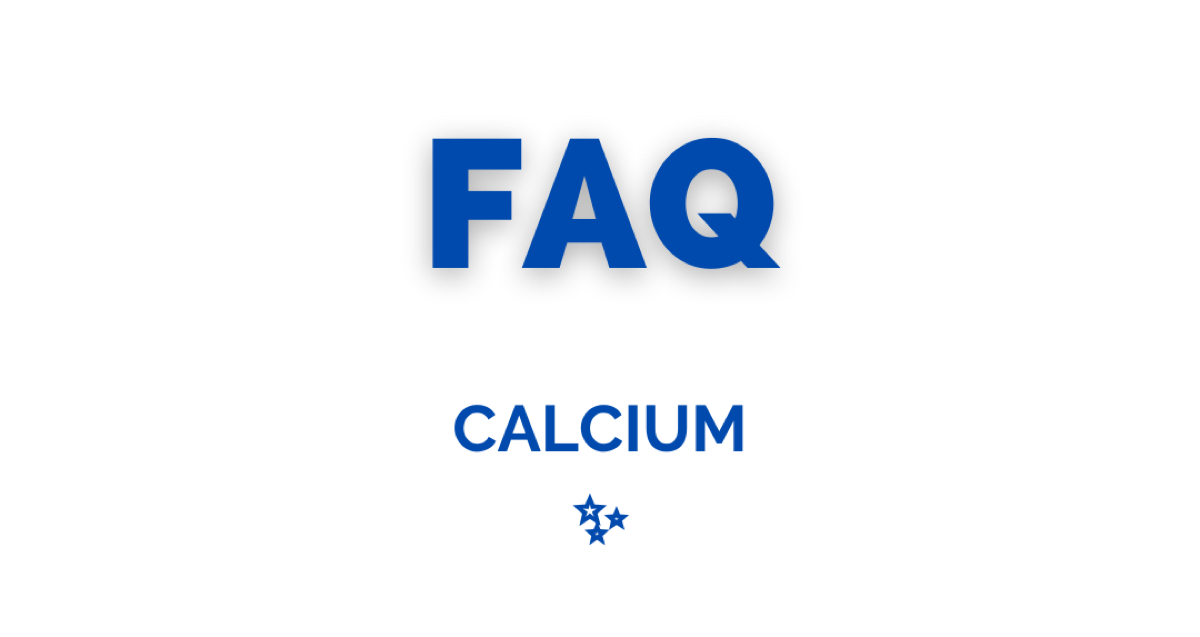We often get asked about calcium requirements on a plant-based diet, so we thought we would dedicate a blog post to this incredible mineral ✨
In this post we cover…
- Why calcium is important for the human body;
- The recommended daily intake of calcium;
- Where we get calcium from on a plant-based diet;
- The most calcium-rich plant foods;
- Factors causing calcium loss or malabsorption
We also detail two days of Sharon’s eats to demonstrate how she hits her daily recommended intake of calcium ✨
Why is calcium important?
Calcium is the most abundant mineral in the human body and is essential for a number of vital functions, including…
- Helping build strong bones and teeth;
- Regulating muscle contractions, including your heart;
- Making sure blood clots normally
Calcium makes up around 1-2% of total body weight and more than 99% of the calcium present in the human body is found in the teeth and bones (NCBI). It is really important to have an adequate daily intake of calcium-rich foods, as a shortage of this mineral could lead to rickets in children and osteomalacia or osteoporosis later in life (NHS).
How much calcium do I need?
Here in the UK, the recommended daily amount (RDA) for the majority of adults aged 19+ is 700mg (it’s 1000mg in the US/Canada). The RDA is a bit higher for 11-18 year olds, post menopausal women and men over 55 years.
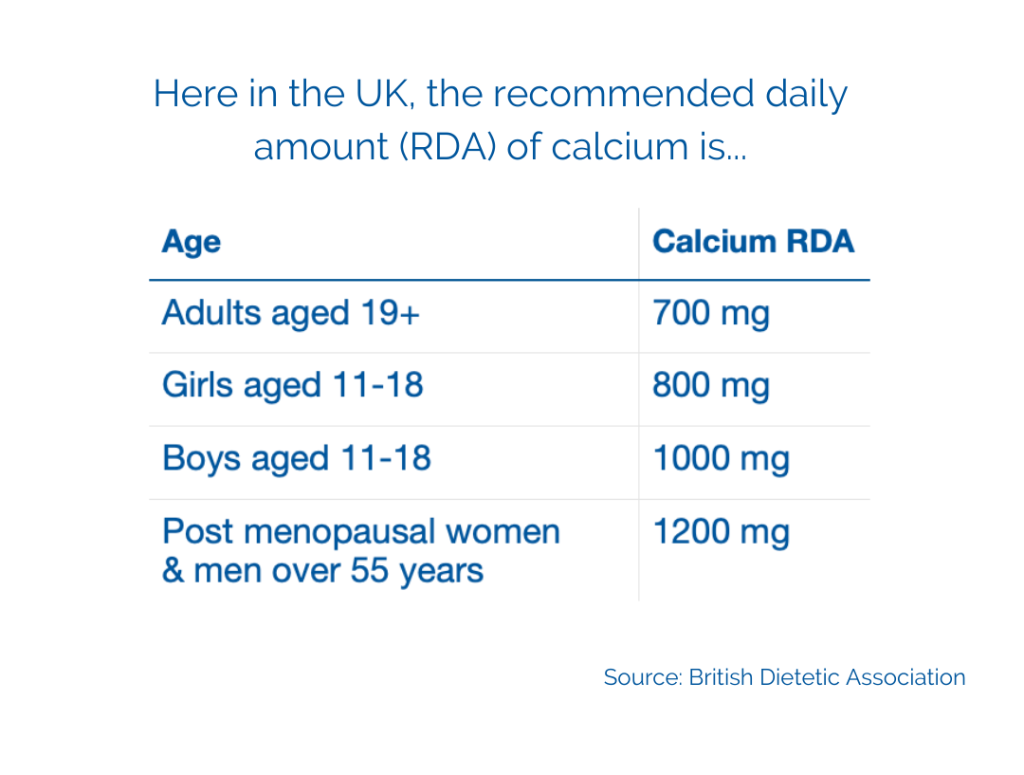
A full list of the calcium RDA by age group can be found here.
Where do we get calcium from on a plant-based diet?
Lots of vegetables, fruit, legumes, nuts, seeds and whole grains contain calcium. The richest sources are calcium-set tofu, fortified plant milks and yoghurts, high calcium greens and beans, chia seeds, almonds, figs and blackstrap molasses.
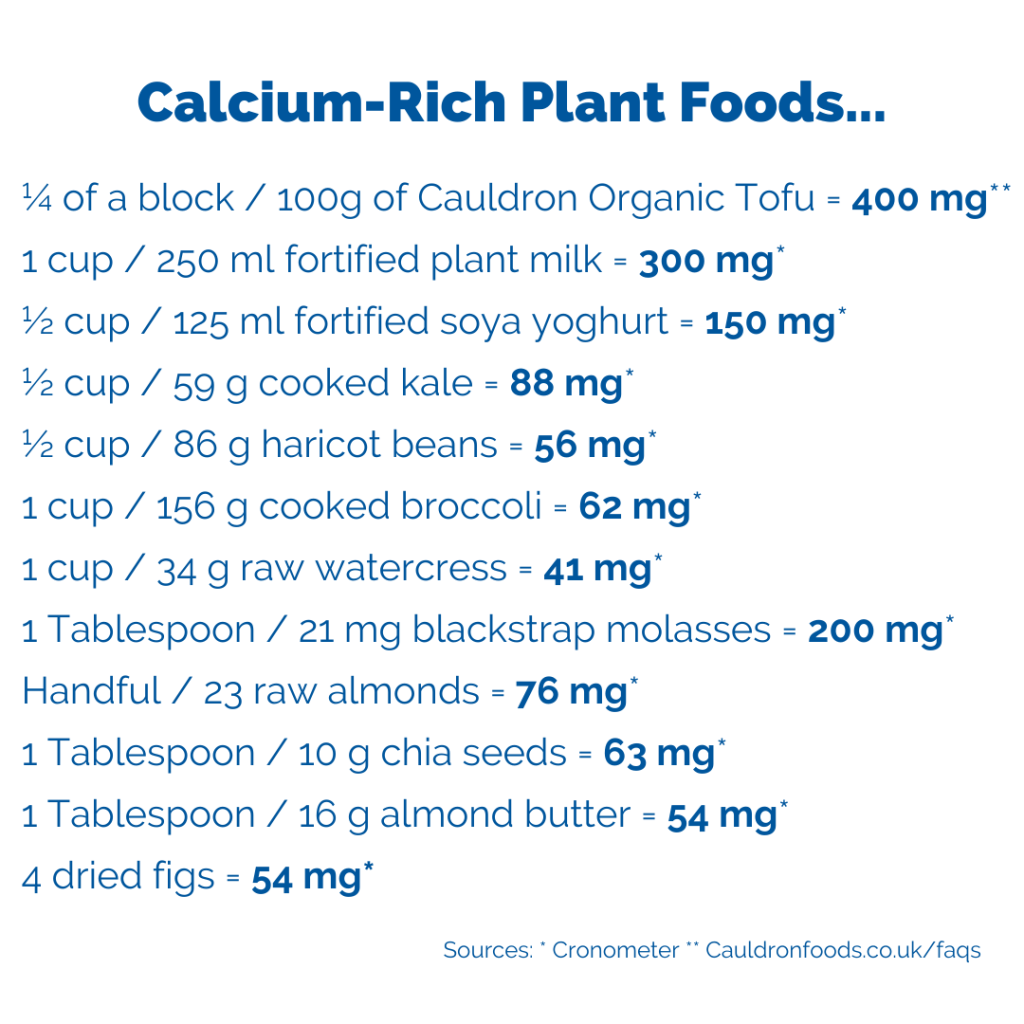
Factors causing calcium loss or malabsorption
It is worth noting that high intakes of salt, protein (especially from meat) and soft drinks can negatively impact the body’s calcium levels. And when it comes to coffee, moderation is key. While consumption of up to three cups of coffee per day appears to have a negligible effect on calcium balance, it is possible that higher intakes may lead to calcium loss (Davis & Melina, 2000).
Vitamin D is required for the active absorption of calcium. To ensure optimal levels, it is recommended in the UK that everyone aged over one take 10 micrograms (400 IU) of vitamin D a day between October and early March to keep bones and muscles healthy (NHS). From about late March/early April to the end of September, most people should be able to get all the vitamin D they need from daily exposure to sunlight on their skin (forearms, legs and face) 🌞
Aim for some daily calcium ‘quick wins’
We like to ensure we get at least a couple of calcium ‘quick wins’ into our daily diet so, by having a fortified milk with our breakfast cereal; a milky afternoon drink or snack (Sharon loves a turmeric latte; Mark and Lucien love a smoothie or bowl of Shreddies) and then a yoghurt for dessert, we have already achieved over 750 mg of calcium, and that’s before we’ve added in our daily portions of greens, beans and almonds! We also love to use calcium-set tofu and have it for lunch or dinner a few times a week.
Below are a couple of examples of Sharon’s typical day of eats during this month. When she reaches post menopausal age, she won’t have to increase her calcium intake as she’s already hitting the higher RDA ✨
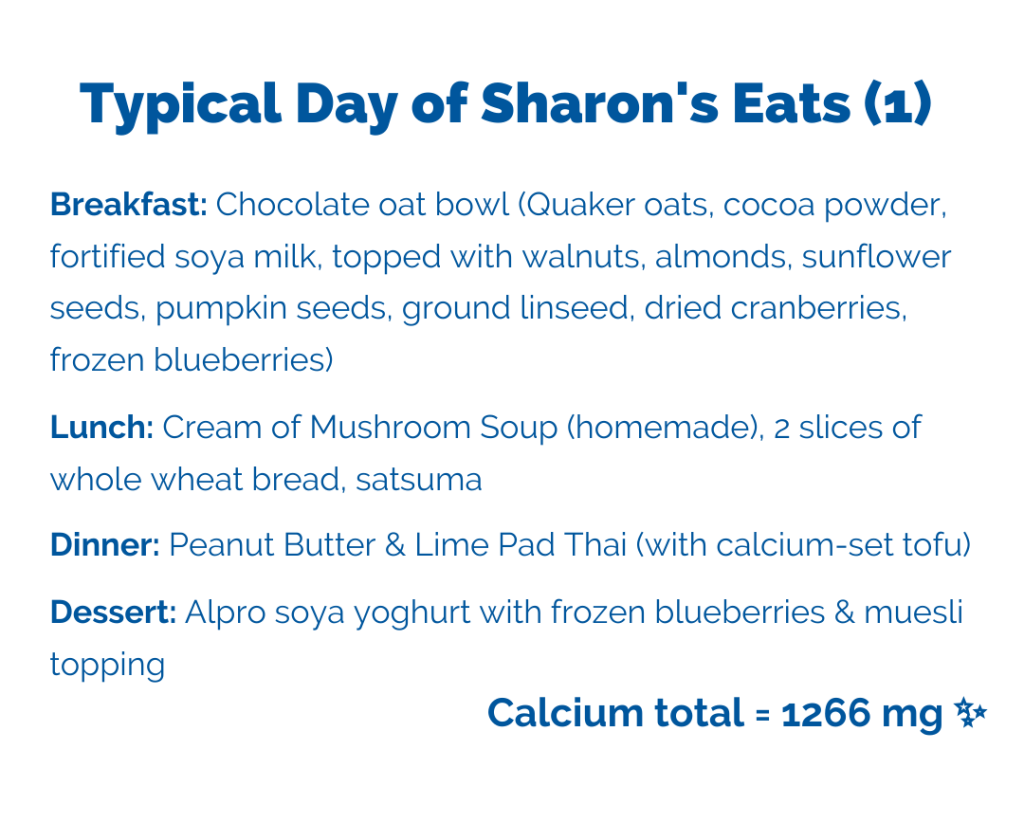
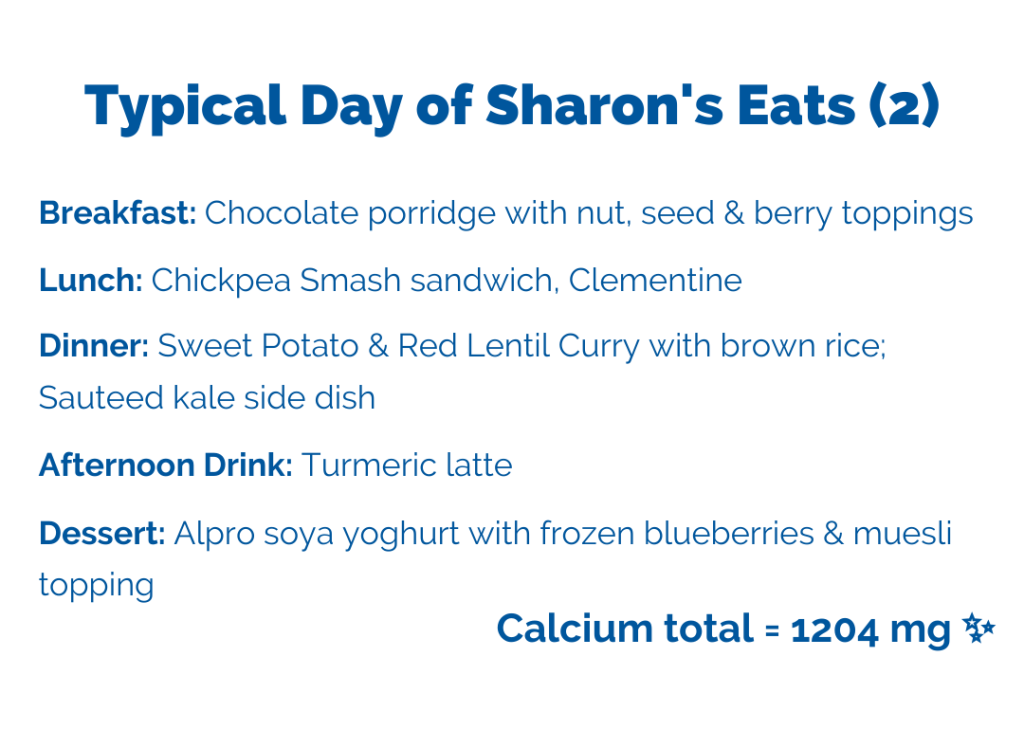
With a little bit of forward thought, it really is easy to ensure that you meet the recommended daily intake of calcium on a plant-based diet. ✨
We’d love to hear what your favourite plant-based sources of calcium are!
Best wishes


